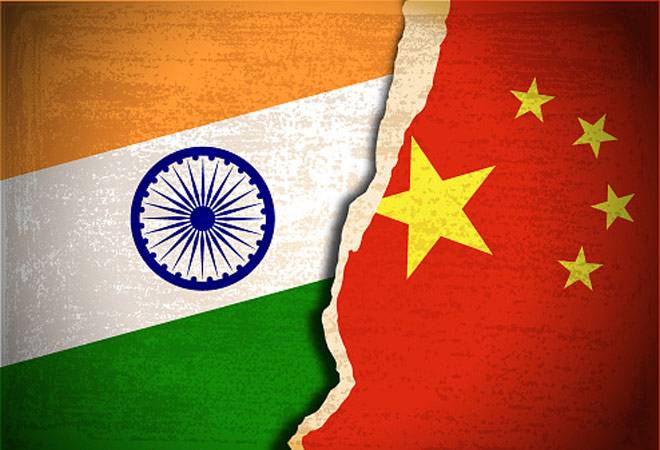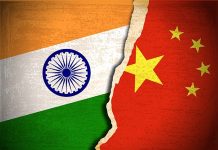This article is written by Rida Zaidi, from the faculty of law, Aligarh Muslim University. This article deals with Pakistan and China growing relations and the India factor in their developing relations.
Table of Contents
Introduction
China is the world’s largest trading and manufacturing country. It is acknowledged as the next global superpower after the United States or may overshadow the states in the times to come. China is highly equipped with technology, military, intelligence sharing, nuclear weapons etc. However, it has maintained its friendly relations with Pakistan which is politically unstable, a failed democracy, publicly funded terrorism and so on but the question is why has China overlooked all these glaring loopholes? Sino-Pak ’s relations have been described by Pakistani President Arif Alvi as “higher than the mountains, deeper than the oceans and sweeter than honey”. China has always allied with unstable countries, has a corrupt elite and whose people are violently contesting for positions of power and being a communist country required the support of someone who would aid it in establishing its relations with the Muslim world furthermore someone who contemplated. India as its enemy to set about together against India.
This article shall deal exhaustively with Pakistan-China’s diplomatic, military, economic relations, factors for China’s alliance with Pakistan, the sino-pak agreement etc.
Diplomatic relations
Pakistan was the first Muslim country to acknowledge the People’s Republic of China and the 3rd non-communist country. The relations have been based on stable and rationalist calculations. Both China and Pakistan built bilateral relations for their respective interests as Pakistan required military and technical support whereas China wanted a friend through which it can maintain ties with the middle-east and a common enemy to India. Both the countries have maintained their ties by regularly paying high-level visits to each other’s countries resulting in a variety of agreements.
When Xi Jinping visited Pakistan for the first time he said “When I was young, I heard many touching stories about Pakistan and the friendship between our two countries. To name just a few, I learned that the Pakistani people were working hard to build their beautiful country and that Pakistan opened an air corridor for China to reach out to the world and supported China in restoring its lawful seat in the United Nations. The stories have left me with a deep impression. I look forward to my upcoming state visit to Pakistan”
Pakistan supported China in reserving a permanent seat in the United Nations. Pakistan voted to condemn China’s excesses in the Tibet region but soon after that, the initial steps were taken which eventually resulted in the strengthening of Pakistan-China’s relations which was the degeneration of India-China’s relations over the border issue where Americans aided India which made the relations of Pakistan and China more secured. Many agreements related to the building up of infrastructure, power plants, nuclear projects etc have taken place continuously and in addition, have paved the way for future associations. In May 2021 Pakistan and China marked 70 years of their friendship.
Military relations
Pakistan-China’s alliance has served the interest of Pakistan more than it has done for China as they have strong ties as are geopolitical. China is Pakistan’s largest supplier of arms. It is not just limited to providing arms but of military equipment, personnel training, intelligence sharing, technology assistance etc. China has provided Pakistan with missiles, aircraft. The two countries have undertaken many projects including nuclear infrastructure, production of aircraft, deadly weapons etc. China has administered Pakistan regarding counterterrorism and the Islamic movements. China has heavily invested in Pakistan’s Gwadar Deep Sea Port, which is strategically located on the shores of the Arabian sea. It is viewed cautiously by both the U.S. and India as a possible airbase for the Chinese navy, allowing them to launch submarines and warships in the Indian Ocean. China has recently assured Pakistan to invest around 45 billion US dollars
United Nations
Pakistan and China have vowed to back each other in the United Nations. It is when Pakistan supported China in regards to the issue of Hong Kong or Xinjiang and when China raised the issue of Kashmir in the United Nations. Both China and Pakistan are working in the direction of protection of basic human rights and that no individual’s rights get infringed. They have stated in the United Nations that they shall support multilateralism, cooperation and peacemaking amongst the Countries. They would function for the fostering of human rights and their promotion in every area and notion possible. They have assured the United Nation that they would operate for regional security and shall recognize the role of the UN in foreign affairs. They expressed to strengthen their relations and would strive to protect and promote each other’s crucial interests.
Counterterrorism
The two all-weather strategic partners have worked together for counterterrorism by strengthening the security cooperation and China assisting Pakistan in the vision of a new Pakistan, learning from the ordeals of China in governance, technical assistance, military, nuclear projects etc. Recently, a terrorist attack took place in China in the form of a bus accident which was later reported to be a pre-planned terrorist attack. Pakistan took the responsibility of conducting a thorough investigation in the matter and China assured Pakistan that it is all set to provide them with the necessary arms and technical support to prevent terrorism within and outside the province of Pakistan. Both China and Pakistan are working together in the direction of averting terrorism from its roots.
Economic relations
Pakistan and China’s economic relations have evolved for ages. As the reports suggest that bilateral ties between Pakistan and China are more favourable for Pakistan than is for China as China has under its control the whole of the real estate of Pakistan, the Karachi and Islamabad Airports etc are all mortgaged by China furthermore the Gwadar Port of Pakistan is on a lease for 99 years this is nothing but economic warfare. But a trade agreement was signed in 2008 between the two countries which resulted in free access to each other’s markets and the profit that it fetched was worth billions. Furthermore, an uprising trend was seen in the trade mechanism.
A joint declaration was signed which bolstered the bilateral ties of the two countries. Ven Jiabao in one of the conferences stated that both China and Pakistan should strive to build together strong ties for which China would support Pakistan in the construction of the Gwadar port or any other significant project. Both of them would gain the perks of maintaining the economic relations as Pakistan has an abundance of resources and China can guide them in the technical support or any other help required. Pakistan and China have indulged in several projects ranging from nuclear plants to production of arms, trade and the list continues. Pakistan-China being strategic partners are well versed with the fact that both of them need to nurture their relationship to pursue their respective aims.
Haque’s point of view
Pakistan’s ambassador to China Moin ul Haque was recently interviewed by the global times where he expressed in detail the Pakistan-China’s relationship. He stated that their ties are rock solid and they are on their way to success. Everyone encounters critics and people pulling them down and so are the enemies of the two countries. They wish to break the ties of all-weather strategic partners but they are determined to do what they have in mind for achieving their goals. They believe in multilateralism, strategic cooperation and peaceful negotiations with anyone and everyone. Haque also stated that their relationship is not for the sake of confronting a third party like India which is portrayed by the media but for their good. He also expressed their relations to be the ground for stability and cooperation in the region. He wished to see Pakistan and China standing firm together in the times to come.
Factors for an alliance with Pakistan
The relationship of Pakistan and China as stated earlier is based on rationalist calculations and until now it was believed that Pakistan needs China more than China needs Pakistan though the scenario has somewhat changed there are several factors for their alliance which are as follows-
- Pakistan has an abundance of resources and China has the expertise.
- Pakistan is the only link through which China can establish its relations with the Muslim world.
- Both China and Pakistan pose a strong threat against India.
- China has availed of Pakistan’s trading from around $ 1billion to $10 billion in a year as estimated.
- China has assured Pakistan of the construction of the Gwadar port and other infrastructural projects.
- Pakistan has always stood for China against the world in the UN whether it was the issue of Hong Kong or Xiajing.
- China has been working with Pakistan regarding counterterrorism for which Pakistan has firmly taken the responsibility to prevent terrorism within and outside the province of Pakistan and to maintain the security of the Chinese personnel, students and Chinese people visiting Pakistan.
- China has invested in a variety of projects in Pakistan for which it is sure that Pakistan can never pay him back yet the reason behind this is economic superiority and total dependence on China.
- China’s alliance with Pakistan has helped China by elevating the military force to protect the CPEC projects which were criticised by some on the grounds of depriving them of their supremacy and yearning.
- Pakistan gave its full support to China for its entry into SAARC and returned Pakistan’s entry into SRO.
- China does not possess friendly relations with the South Asian Countries so it used Pakistan to analyse its foreign policy.
- China is a strategic partner of Pakistan and it is understood that it affirms all its policies and so it does to the production of nuclear weapons as well. Having said that Pakistan is the only Islamic country retaining nuclear weapons so through Pakistan, China can contact the west Asian countries.
- China has made use of Pakistan as an incentive as the United States is the largest trading partner of China.
- The installation of CPEC projects has helped China in generating its energy requirement as it reaches China through the Gwadar Port.
Sino-Pakistan Agreement
The Sino-Pakistan Agreement is a boundary agreement that was signed by the two countries in 1963. It demarcates the area of China’s Sinkiang and Pakistan’s adjoining areas which are under the control of Pakistan. The agreement is based on the principles of equality and good faith. It also aims at establishing friendly and cordial relations with each other.
Significance
The agreement was politically significant for Pakistan as its northern border was now totally secure from any future strikes. Pakistan and China were of the view that the boundary was never demarcated and defined but India clearly stated that it was defined long back. The agreement strengthened the bilateral ties of the two countries but aggravated its relations with India and Pakistan’s relations with the United States in regards to the Kashmir issue.
Issue and result
In 1959 some maps of China portrayed certain areas of Pakistan as theirs regarding which China was a bit taken back but as Pakistan had China’s back for securing a permanent seat in the UN, China did not take up this issue. China Both China and Pakistan were negotiating for taking up the agreement regarding the border issue. It was criticised by many including India because the agreement was not legal furthermore, Pakistan evacuated a large area of its territory to China for this agreement.
Why has China halted CPEC projects
Pakistan and China’s Economic Corridor (CPEC) was inaugurated with a lot of vigour in 2015. China has already invested a lot in Pakistan whether it is in infrastructure or nuclear plants or technical assistance. But reports suggest that there has not been much progress in the CPEC Projects and has been still for a while. The Gwadar project, which is worth a billion, lacks necessities like water and electricity. Furthermore, there have been many attacks for which China is concerned. Pakistan being unsecured may push away potential investors from investing in its country. People from the opposition have been continuously criticising the CPEC projects and their lack of progress but it cannot be totally denied that they are slowly and steadily working towards what they aspire to achieve shortly.
Political fragility and corruption
Many reports disclose the true intentions behind the CPEC projects of China which are purely about serving its socio-economic interests and establishing a corrupt elite in Pakistan. China has invested around 62 billion in CPEC projects which lack transparency and accountability. Owing to a lot of criticism and resentment from the public, as soon as Imran Khan took the office of the Prime Minister of Pakistan he ordered a thorough investigation against all the allegations concerning the CPEC projects. China too became cautious while investing a large sum of money into any project fearing the repercussions of its actions or from the response of the general public.
The India factor
Pakistan, China and India’s relations have been described as a triangular relationship by the World. It would not be wrong to state that one of the factors of the relations between Pakistan and China is the common threat towards India. Pakistan and China’s ties are purely geostrategic and are bilateral. India has been very tranquil in regards to all the mutations and attacks that were targeted to it and with every Country trying to be resilient with each passing day, India too needs to come to the forefront and counter back its neighbours.
War is not always bad but is undesirable and whichever country wins, it in some way gets favoured in economic terms as its economy gets flourished in the future.‘War always deceives’ which is a popular saying which it truly does as under the Indian shastras as well it is mentioned that for any country to achieve any objective four principles of Chanakya which is commonly known as the Chanakya neeti need to be kept in mind that are- saam meaning thereby the power of convincing your opponent, second is the daam meaning thereby economic benefit which for example India did by sending free vaccines to many countries, third is dand meaning thereby military force and the final principle is bhedd meaning thereby deception which the intelligence agencies do. COVID-19 has hit every country at a varying rate. India was affected the most especially during the second wave of COVID-19. There is still doubt about the so-called bioweapon of COVID-19 which may or may not be manufactured by China. Weapons are basically of three categories-nuclear weapons, chemical weapons and biological weapons. Biological weapons are not a new term and have evolved a century ago but during the COVID-19 era, it became quite popular through the media as it is a weapon made out of bacteria or biological viruses.
Initially, the relations between India and China started quite well during the Nehru regime where he envisioned the relations of China and India to be global relations like two brothers standing together in happy times and tough times. In 1954, a Panchsheel agreement was signed between India and China for growing their friendship but their relations deteriorated when the Chinese army attacked India in 1962 which caused a rift amongst the two countries and China supported Pakistan to counter India and the USSR and in 1963 china resolved its border dispute with Pakistan but with times the relations were reforming and today the trade between India and China stands for about $60 billion and both are working towards achieving more in the times to come. The issues that persist are the border issue, the Tibetan issue etc. Pakistan which always had conflicts with India saw those building relations with China would not just serve its interest in border issues, military equipment etc but would be in a better position to strike India. It can be understood that India is one of the factors behind China and Pakistan’s relations but not the only factor as both China and Pakistan need each other’s support in developing and prospering their respective Countries and India only functions as a stimulant in doing so.
Conclusion
The all-weather strategic partners’ China and Pakistan have built strong, cooperative and bilateral ties with each other. The relationship is entirely based on strategic and geopolitical grounds serving their respective interests. China has maintained its relations with Pakistan to experiment with its foreign policy as most of its neighbours are in continuous conflicts with China. Another reason could be to have Pakistan’s support in the UN General Assembly whenever any issue arises where China requires the support of any Country, Pakistan would aid it in doing so. Pakistan on the other hand is politically unstable and unsettled and somewhat a failed democracy so it also required the support of China in assisting it with technical, military and intelligence support. Both countries have signed a variety of agreements in infrastructure, nuclear weapons, production of arms and missiles etc and have been paying high-level visits to each other’s countries which have established diplomatic relations between the two. Reports suggest that the Pakistan-China relationship is built on the ground of common threat to India but after analysing every layer of the relation, one can clearly state that the India factor only acts as a catalyst and the Sino-Pak ties is beyond the territorial dispute with India and various other factors are present which guide both the countries to continue maintaining their ties with each other.
Reference
- https://www.globaltimes.cn/page/202108/1231053.shtml
- https://www.orfonline.org/expert-speak/lessons-in-friendship-explaining-70-years-of-china-pakistan-relations/
- https://thediplomat.com/2021/07/the-china-pakistan-partnership-continues-to-deepen/
- https://www.globaltimes.cn/page/202108/1230303.shtml
- https://www.businessinsider.in/international/article/opinion-the-bitter-truth-about-the-friendship-between-china-and-pakistan/articleshow/79533677.cms
Students of Lawsikho courses regularly produce writing assignments and work on practical exercises as a part of their coursework and develop themselves in real-life practical skills.
LawSikho has created a telegram group for exchanging legal knowledge, referrals, and various opportunities. You can click on this link and join:
https://t.me/joinchat/J_0YrBa4IBSHdpuTfQO_sA
Follow us on Instagram and subscribe to our YouTube channel for more amazing legal content.
 Serato DJ Crack 2025Serato DJ PRO Crack
Serato DJ Crack 2025Serato DJ PRO Crack











 Allow notifications
Allow notifications


